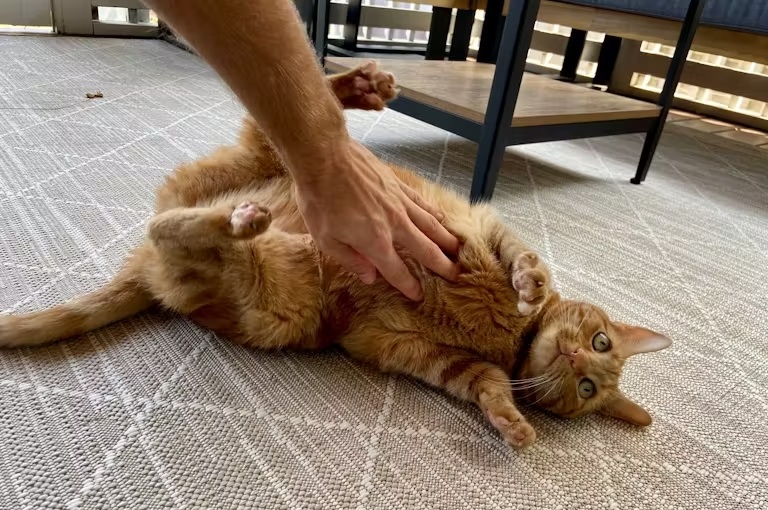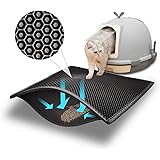Belly rubs are one of the most natural gestures a pet owner would do to their furry friends. In the case of cats, though, this rather simple action may turn out to be a bit more complicated. Cats, unlike dogs, don’t really show comfort and boundaries in the same way. Knowing whether cats love belly rubs demands a detailed analysis on body language, behavior, and even individual character traits. The following article will explain why some cats may enjoy a good belly rub and others may not, as well as how to treat this sensitive area with gentleness and respect.
Cat Behavior
The cat has been a very special creature, with a host of very special behaviors and likes that have fascinated many a mind. Knowing the details of cat behavior would also help us to take better care of our little feline friends. In this article, we will shed some light on different aspects of cat behavior, including body language, socialization, and instinctual behaviors.
Body Language of Cats
Body language in cats is one of the more essential keys to understanding their behavior. Cats use a variety of signals to convey their feelings and intentions. For example, a relaxed or comfortable cat is going to purr, knead with its paws, and be relaxed in its posture. A cat that is threatened or frightened will lay its ears back on its head, fluff its fur out, and hiss or growl.
By reading your cat’s body language, you’re better placed to know their mood and act accordingly. This will help you build a better bond with your cat, and there will be no miscommunication at all.
Socialization and Trust
The other vital factor involved in cat behavior is socialization and trust. The cat is a social creature that bonds closely with its human caregiver and other animals in their space. They are, however, also known to be very independent and territorial animals.
Reaching out to your cat with positive interaction, playtime, and respect will help to strengthen the bond between you. If they feel safe and secure in the environment, they are more likely to be very affectionate by purring, cuddling, and seeking attention.
Instinctual Behaviors
The instinctual behaviors of a cat add variety to the character because they are natural and evolutionarily British in origin. Some of these instinctual behaviors allow cats to survive outdoors and move around their environment. Cats, for instance, are natural predators with such innate tendencies as stalking, pouncing, and playing with toys that seem to imitate prey.
Knowing about the instinctual behaviors of your cat can be very important in setting up appropriate outlets for their energy and natural instincts. This might include interactive toys, scratching posts, and opportunities for play and exploration.
The key to taking proper care of a feline companion lies in knowing cat behavior, body language, instinctual and socialization behaviors. If you really know what’s going on, just by watching and responding to your cat’s needs and preferences, you’ll easily cement a lifelong relationship of good vibes with your furry friend.
Cat Belly Rub
Many cat owners have different opinions on whether cats actually enjoy belly rubs. Some cats may love them and show their appreciation by purring and rolling over, while others may become agitated or even aggressive when their bellies are touched. Let’s explore the reasons behind these varying preferences.
Why Some Cats Love Belly Rubs
- Bonding and Trust: Cats that enjoy belly rubs may see it as a sign of affection and trust from their owners. They feel comfortable exposing their vulnerable belly, which is a sensitive area for most animals.
- Sensory Stimulation: Belly rubs can provide cats with pleasurable sensations as they have many nerve endings in that area. It can be a form of tactile stimulation that some cats find enjoyable.
- Positive Associations: Cats that have had positive experiences with belly rubs in the past may come to associate them with feelings of relaxation and comfort. They may seek out belly rubs as a way to feel good.
Why Some Cats Dislike Belly Rubs
- Instinctual Response: Cats are natural predators and have a strong instinct to protect their vital organs. When their bellies are touched, they may interpret it as a threat and respond defensively.
- Sensitivity: Some cats have a lower tolerance for touch and may find belly rubs too intense or uncomfortable. They may prefer gentler forms of affection, such as head scratches or chin rubs.
- Past Trauma: Cats that have had negative experiences with belly rubs, such as being restrained or handled roughly, may develop a fear or aversion to them. These cats may exhibit signs of stress or aggression when their bellies are touched.
Signs Your Cat Enjoys Belly Rubs
- Purring: A cat that is enjoying a belly rub may purr loudly as a sign of contentment.
- Kneading: Some cats will knead their paws while receiving a belly rub, which is a behavior associated with comfort and relaxation.
- Rolling Over: Cats that trust their owners and feel safe may roll over to expose their bellies, indicating that they are open to receiving affection in that area.
In summary, a cat liking its belly rubbed depends on the cat itself and all its previous experiences. Respect your cat’s boundaries, and always be sure that it is comfortable and enjoying itself by looking out for body language.
Respecting Your Cat’s Preferences
When it comes to showing affection to your cat, it’s important to respect their individual preferences. While some cats may enjoy belly rubs, others may find them uncomfortable or even stressful. It’s essential to pay attention to your cat’s body language and cues to understand what they do and do not like.
Alternative Ways to Show Affection
If your cat is not a fan of belly rubs, there are plenty of other ways to show them love and affection. Some cats may prefer gentle head scratches, chin rubs, or even just spending quality time together. Pay attention to how your cat responds to different forms of affection and adjust your interactions accordingly.
Creating a Bond with Your Cat
Building a strong bond with your cat goes beyond physical affection. Spending time playing, grooming, and simply being present with your cat can help strengthen your relationship. Cats are highly individual creatures, so it’s important to tailor your interactions to suit their unique preferences and personality.
Observing and Responding to Your Cat’s Cues
One of the keys to understanding your cat’s preferences is to observe their behavior and body language. Pay attention to how they react to different types of affection and adjust your approach accordingly. If your cat shows signs of discomfort or stress, it’s important to respect their boundaries and find alternative ways to show them love and affection.
The question of whether cats like belly rubs is not a straightforward one. While some cats may enjoy the attention and affection that comes with belly rubs, others may find it uncomfortable or even threatening. It is important for cat owners to pay attention to their individual cat’s body language and cues to determine whether belly rubs are a welcomed activity. Ultimately, understanding and respecting a cat’s preferences is key to maintaining a positive and trusting relationship with our feline companions.
































































